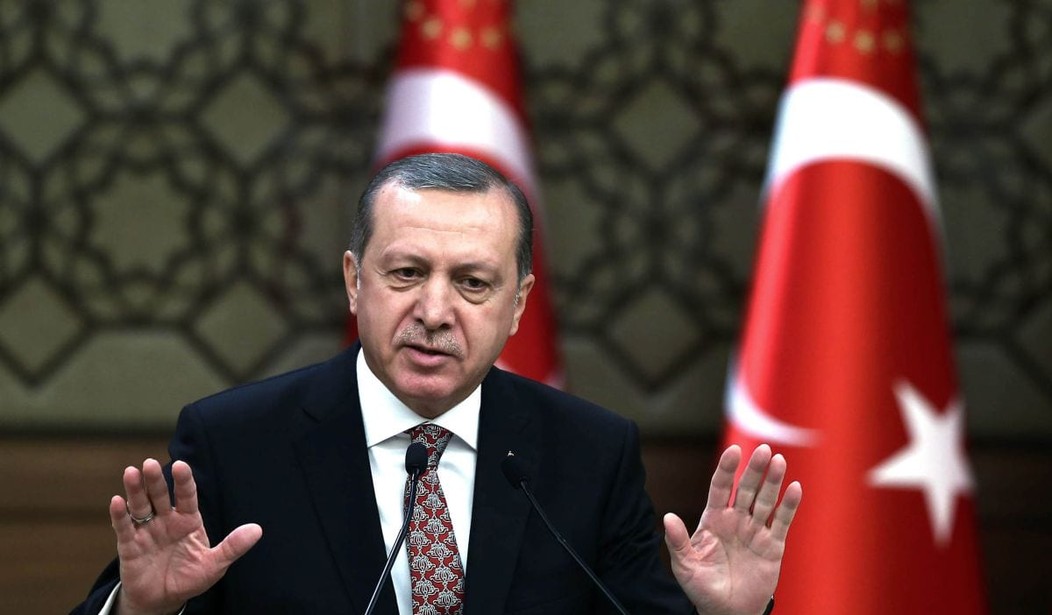Turkish President Tayyip Erdogan has been in power either as prime minister or president since 2003. During these years, Erdogan moved slowly and carefully to transform Turkey from a mostly free, mostly secular democracy into an authoritarian Islamist state.
He started by picking a fight with the judiciary, after which he began to appoint judges who had a more favorable view of fundamentalist Islam. No big moves, just a subtle shift in allegiances.
There were educational reforms, economic reforms, and other baby steps toward Islamization of the country. But all the while, Erdogan was looking over his shoulder at the military — the one institution in Turkey that could foil his plans. He didn’t dare make any sudden moves.
Then the coup happened and Erdogan has been able to throw off all pretenses of what he wants for himself and Turkey. The president hammered a nail into the coffin of Turkish democracy today when he issued a decree that virtually destroys the opposition press by closing down 130 radio and TV stations, newspapers, and magazines. There were more arrests of senior officers in the military as well.
Politico:
Three news agencies, 16 television stations, 23 radio stations, 45 newspapers, 15 magazines and 29 publishers, were ordered closed, AFP reported, citing a Turkish official confirming a government decree published in the official gazette.
The decree also saw 87 land army generals, 30 air force generals, and 32 admirals, dishonorably discharged over their involvement in the attempt to seize power on July 15, which left more than 200 people dead. About 1,000 officers and 400 junior officers were also dishonorably discharged.
If there were that many disloyal officers who took part in the coup, it wouldn’t have failed.
AFP reported, citing CNN-Turk, that mainly provincial media outlets were affected, but also well-known national media including the Cihan news agency, pro-Kurdish IMC TV, and opposition daily newspaper Taraf.
Also ordered shut were Zaman and Today’s Zaman, its English-language publication. Both were part of a holding linked to U.S.-based cleric Fetullah Gülen (whom the Turkish government says is behind the coup attempt) before being put under state administration earlier this year.
Upwards of 60,000 have been arrested, suspended, or fired since the crackdown began — thousands of soldiers, many thousands of teachers and education administrators, lawyers, judges —and few are connected to the supposed Gulen conspiracy. Most are just opponents of Erdogan or are opposing his plans to transform Turkey from a parliamentary form of government to one where the executive wields most of the power.
Those plans have accelerated, as Erdogan now wants to take control of the military and the intelligence agencies. If he can pull it off, it would make Erdogan the most powerful leader in Turkey since the last Sultan, Mehmed VI.
Erdogan has taken Turkey from a boiling frog scenario, where he was gradually transforming society, into a flash fry scenario where change is happening in the blink of an eye. Regardless of how it happened, it will all end up with Erdogan heading up an Islamist government in one of the most strategic locations on earth.










Join the conversation as a VIP Member